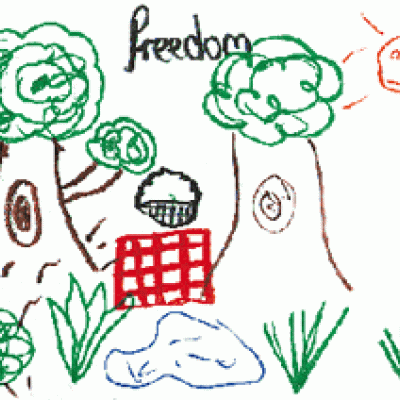Refine results
-
14 December 2012Book page
HREOC Social Justice Report 2002: International developments in the recognition of the rights of Indigenous peoples
The circumstances of Indigenous peoples were virtually invisible at the United Nations approximately thirty years ago. Very little attention had been devoted to their situation and their claims were by and large unheard in international fora. Since the early 1970s, however, Indigenous peoples have made significant inroads towards the recognition of their rights and acceptance of their legitimate… -
14 December 2012Book page
Commission Website: National Inquiry into Children in Immigration Detention
I am pleased to present herewith a submission on behalf of the Association of Childrens Welfare Agencies, addressing key issues for the Inquiry into Children in Immigration Detention. -
Legal14 December 2012Webpage
Inquiry into the future direction and role of the Senate Scrutiny of Bills Committee (2010)
The Australian Human Rights Commission (the Commission) makes this submission to the Senate Scrutiny of Bills Committee regarding its Inquiry into the future direction and role of the Senate Scrutiny of Bills Committee. -
Aboriginal and Torres Strait Islander Social Justice14 December 2012Speech
Essentials for Social Justice: The Future
I begin by paying my respects to the Kaurna peoples, the traditional owners of the land where we gather today, I pay my respects to your elders, to the ancestors and to those who have come before us, And thank you, for your generous welcome to country for all of us. -
Employers10 February 2015Webpage

Integrating human rights into Australian business practice
Learn how Australian businesses can integrate human rights into their practices with these comprehensive factsheets from the Australian Human Rights Commission. -
14 December 2012Book page
Indigenous young people with cognitive disabilities
This section outlines current knowledge around Indigenous young people with cognitive disabilities and/ or mental health issues. It introduces concepts and best practice models from Australia and internationally. -
14 December 2012Book page
HREOC Website: National Inquiry into Children in Immigration Detention
DR OZDOWSKI: Welcome to everyone. I think there is no need again to administer the oath or affirmation. As with yesterday, we will do it only in the case of new witnesses coming, but please understand that the principles associated with the oath or affirmation do stand up. Also, I would like to ask witnesses in order to finish on time, that they will focus on questions and try to answer, and to… -
Rights and Freedoms18 November 2016Speech
National Faith and Civil Marriage Equality Forum
National Faith and Civil Marriage Equality Forum Hosted by Australians 4 Equality Main Committee Room, Parliament House, Canberra Edward Santow, Human Rights Commissioner, Australian Human Rights Commission Check against Delivery Introduction My late father used to talk about our family’s motley religious heritage. Dad’s mother was Anglican, his step-mother was a Quaker and his father, my -
Legal14 December 2012Webpage
NOTICE OF DECISION ON APPLICATION FOR TEMPORARY EXEMPTION: AUSTRALASIAN RAILWAYS ASSOCIATION: DIRECT ASSISTANCE IN ASCENDING AND DESCENDING BOARDING RAMPS
By this instrument, the Human Rights and Equal Opportunity Commission (‘HREOC') grants an application by the Australasian Railways Association (‘the ARA') for a temporary exemption pursuant to sections 55(1) and 55(1A) of the Disability Discrimination Act 1992 (Cth) (‘DDA') in relation to direct assistance to passengers. -
Children's Rights11 January 2017Speech
A life free from violence and fear: a child’s right
2016 International Congress on Child Abuse and Neglect Held by the International Society for the Prevention of Child Abuse and Neglect in Calgary, Canada Introduction Good afternoon. It’s a pleasure to be here in Calgary today to speak about the work I have done as Australia’s first National Children’s Commissioner, among so many eminent peers from across the globe. Before I begin, I would… -
Commission – General6 August 2018Publication
Corporate Plan 2018-2019
Our Corporate Plan is the road map that guides the Commission’s work for each financial year with a four year outlook. It shows how we implement our purpose and promote an Australian society where human rights are enjoyed by everyone, everywhere, everyday. There is no simple way to solve complex human rights issues. From the challenges that face a person with a disability seeking to live -
14 April 2015Book page
5 Nations - Self-determination and a new era of Indigenous governance
5.1 Introduction 5.2 The importance of Nations 5.3 Framework for Indigenous governance 5.4 Community governance: a Nation building approach 5.5 Australian accounts of successful nation building 5.6 Voices of Nations, not just national voices 5.7 Conclusions and recommendations 5.1 Introduction Since the beginning of my term as Aboriginal and Torres Strait Islander Social Justice Commissioner… -
Commission – General14 December 2012Speech
Graduation Address
I speak to you now, not as the Chancellor of this University, but as the President of Australia’s national Human Rights and Equal Opportunity Commission. And while my remarks are addressed primarily to today’s graduands, I suspect what I am about to say will resonate among parents and friends. -
Rights and Freedoms14 December 2012Project

Rural and Remote Education Inquiry
Rural and Remote Education Inquiry The National Inquiry into Rural and Remote Education was initiated by the Commission in February 1999. The 1998 Bush Talks consultations on the human rights concerns of regional, rural and remote Australians had revealed that access to education of an appropriate standard and quality was a significant concern in rural and remote areas. In this section you… -
Rights and Freedoms12 March 2018Speech
The sick and disabled under National Socialism
Registered, persecuted, annihilated: the sick and disabled under National Socialism Erfasst, verfolgt, vernichtet—kranke und behinderte Menschen im Nationalsozialismus Emeritus Professor Rosalind Croucher AM President, Australian Human Rights Commission Introduction Professor Gus Lehrer, Mr Norman Seligman, Associate Professor Michael Roberston, Holocaust survivors, distinguished guests… -
Business and Human Rights2 December 2015Speech
Launch of Human Rights in Supply Chains: Promoting Positive Practice
After years of debate and consultation led by Professor John Ruggie, the United Nations Special Representative for Business and Human Rights, there is now clarification at the international level about the responsibility of business through the United Nations Guiding Principles on Business and Human Rights. -
Legal14 December 2012Webpage
National Human Rights Consultation - Appendix 1
Back to Table of Contents Appendix 1 – Recommendations Appendix 1: Recommendations Recommendation 1: Australia should promote and protect all human rights in the international human rights treaties to which Australia is a party and the international human rights declarations Australia supports. Recommendation 2: The Australian Parliament should enact a national Human Rights Act… -
Legal14 December 2012Webpage
Commission submission - Child's Right to be Heard
1.1 It is submitted that the law in Australia is both uncertain and unsatisfactory as to the issue of whether a child's views should ordinarily be taken into account by a court when that court is considering whether to authorise medical treatment on the child. -
Asylum Seekers and Refugees14 September 2016Publication
Pathways to Protection: A human rights-based response to the flight of asylum seekers by sea
President’s introduction Australia’s policy of sending asylum seekers and refugees to Nauru and Papua New Guinea’s Manus Island for processing of their claims has been one of the most contentious aspects of Australia’s migration policies. Introduced in 2012, third country processing has been a key plank of successive Australian governments to deter asylum seekers from travelling to Australia by… -
14 December 2012Book page
Native Title Report 2006: Chapter 1: Indigenous Perspectives on Land and Land Use
If a group’s traditional country is not in a mining area they escape the injury to country that mining represents but have little opportunity to really develop industry and commerce that could support their communities.1
Pagination
- First page « First
- Previous page ‹ Previous
- …
- 90
- 91
- 92
- 93
- Current page 94
- 95
- 96
- 97
- 98
- …
- Next page Next ›
- Last page Last »
